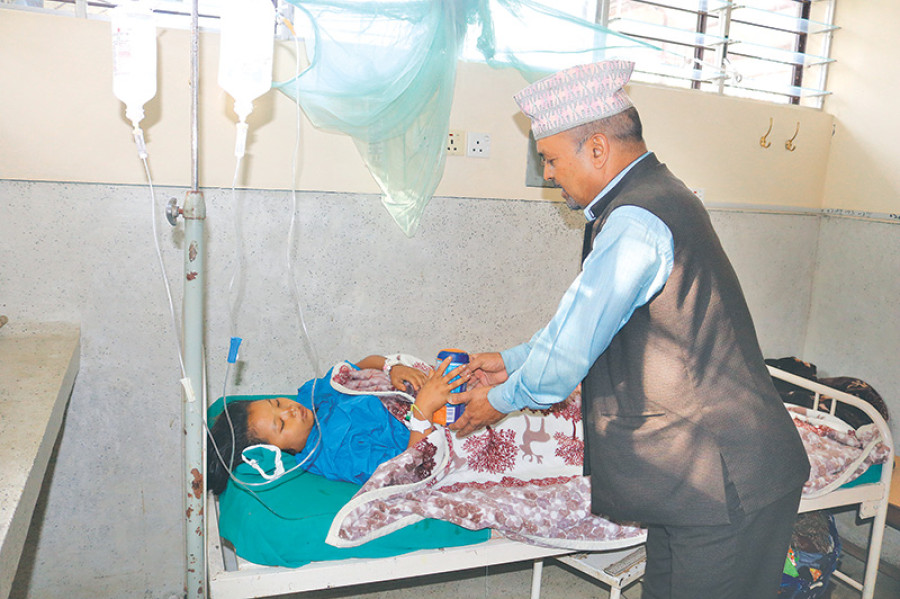National
Underage marriage in Karnali puts young mothers at risk
Last year, Krishna Kasera of Pipalkot village in Aathbiskot Municipality-5, Dailekh, died during labour. Married off by her parents at a tender age of 13, Krishna was just 15 during the time of her death.
Jyotee Katuwal
Last year, Krishna Kasera of Pipalkot village in Aathbiskot Municipality-5, Dailekh, died during labour. Married off by her parents at a tender age of 13, Krishna was just 15 during the time of her death.
Krishna’s is a case that is similar to what many young, economically-backward girls who live with a lack of awareness about reproductive health in rural areas face. This year alone, the Ministry of Social Development in Karnali Province has saved the lives of five pregnant mothers who were suffering from labour pains by flying them to fully-facilitated hospitals via helicopters on time.
Local units in Humla also rescued 20 pregnant women and ensured safe deliveries within the past few months. The Chief of the Health Division in the ministry, Birkha Bahadur Shahi, said that a majority of the rescued women were under the age of 20.
Girls in rural areas, who are married off at a young age, are often fated to suffer from injustice, sexual and domestic violence, and health problems. Other issues that surround young, pregnant women are: pregnancy-related complications, uterine prolapse, infant and maternal mortality, malnutrition of mother and child, etc. Most women also go through psychological problems, including depression and violent marital relations, with many committing suicide.
“Many women are at risk in Dailekh due to early marriage,” said Rekha Basnet, auxiliary health worker of Pipalkot Health Post, adding that women become pregnant so soon after marriage due to a lack of awareness of contraceptive measures. “Newly wed couple doesn’t use contraceptives here because they do not know anything about them.”
The minimum age of marriage for both women and men is 20 under the country’s law. And although Nepal abolished child marriage in 1963, the practice is still rampant in most rural areas, with human rights activists blaming the government for failing to take sufficient steps to end the practice.
Data collected from the Provincial Hospital, in Birendranagar, showed that only last year, 809 women, who were under the age of 20, gave birth to babies. In total, the hospital received 4,995 pregnant women in the fiscal year 2017-18.
According to the ministry, the rate of child marriage in Karnali Province is currently 52 percent. Salyan has the highest rate of child marriage (74 percent), whereas Jumla has a child marriage rate of 20 percent. Dr Niranjan Pant said that girls who marry early are vulnerable to pregnancy-related complications, malnutrition, lack of sanitation, poverty, illiteracy and food insecurity among others. “The women and child mortality rate has been increased due to teen pregnancy,” he said.
To raise awareness about this issue, and to put an end to it, various government and non-government organisations have been raising campaigns against child marriage; however, a lot needs to be done to end this practice of child marriage.




 16.12°C Kathmandu
16.12°C Kathmandu














